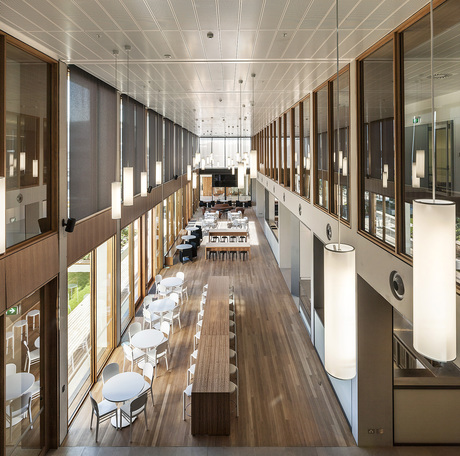Exploring immunology at the Indo-Australian Biotechnology Conference

The Westmead Millennium Institute for Medical Research (WMI) will next month host the 11th annual Indo-Australian Biotechnology Conference, providing an opportunity for Australian medical researchers to forge closer links with their Indian counterparts.
The event will explore how new discoveries about the human immune system are influencing research in infectious and autoimmune diseases, cancers and the development of vaccines. It is expected to provide a platform to share real-world experiences and solutions to clinical problems in Australia and India through research, as well as to define achievable directions for vaccines, immunotherapies and drugs that will benefit both patients and the community.
According to WMI Executive Director and conference convener Professor Tony Cunningham, the conference’s 28 Australian and Indian speakers will cover topics of interest to both countries, “including HIV, malaria, TB, dengue, ovarian cancer and hospital-acquired infections”. Keynote speakers include Professor V Nagaraja, from the Indian Institute of Science in Bangalore, who will speak about the challenges posed by the resurgence of the bacterial infection that causes deadly tuberculosis; and Professor Ian Frazer, former Australian of the Year and co-creator of the technology for the cervical cancer vaccine, who will speak about his latest research into skin cancers.
The secretary-general of the Indo-Australian Biotechnology Society, Dr Sheel Nuna, said the annual conference has greatly contributed to improving dialogue between researchers and potential investors over the past 11 years. He noted, “The conference played an important role in the establishment of the Australia-India Strategic Research Fund (AISRF) in 2006 — and, with the Australian Government’s recent commitment of an extra $20 million, the AISRF is Australia’s largest bilateral research fund with any country.”
To be held from 7–8 September, the conference will take place at the WMI’s new medical facility at Westmead Hospital in Sydney. For further details, visit the event website.
Noxopharm says paper reveals science behind its immune system platform
Clinical-stage Australian biotech company Noxopharm Limited says a Nature Immunology...
Neurosensing/neurostimulation implants session to be held on Monday
On Monday, a session at UNSW Sydney will include people who are benefiting from bioelectronics...
argenx and Monash University partner against autoimmune diseases
To advance a pioneering molecule for autoimmune diseases, global immunology company argenx has...



